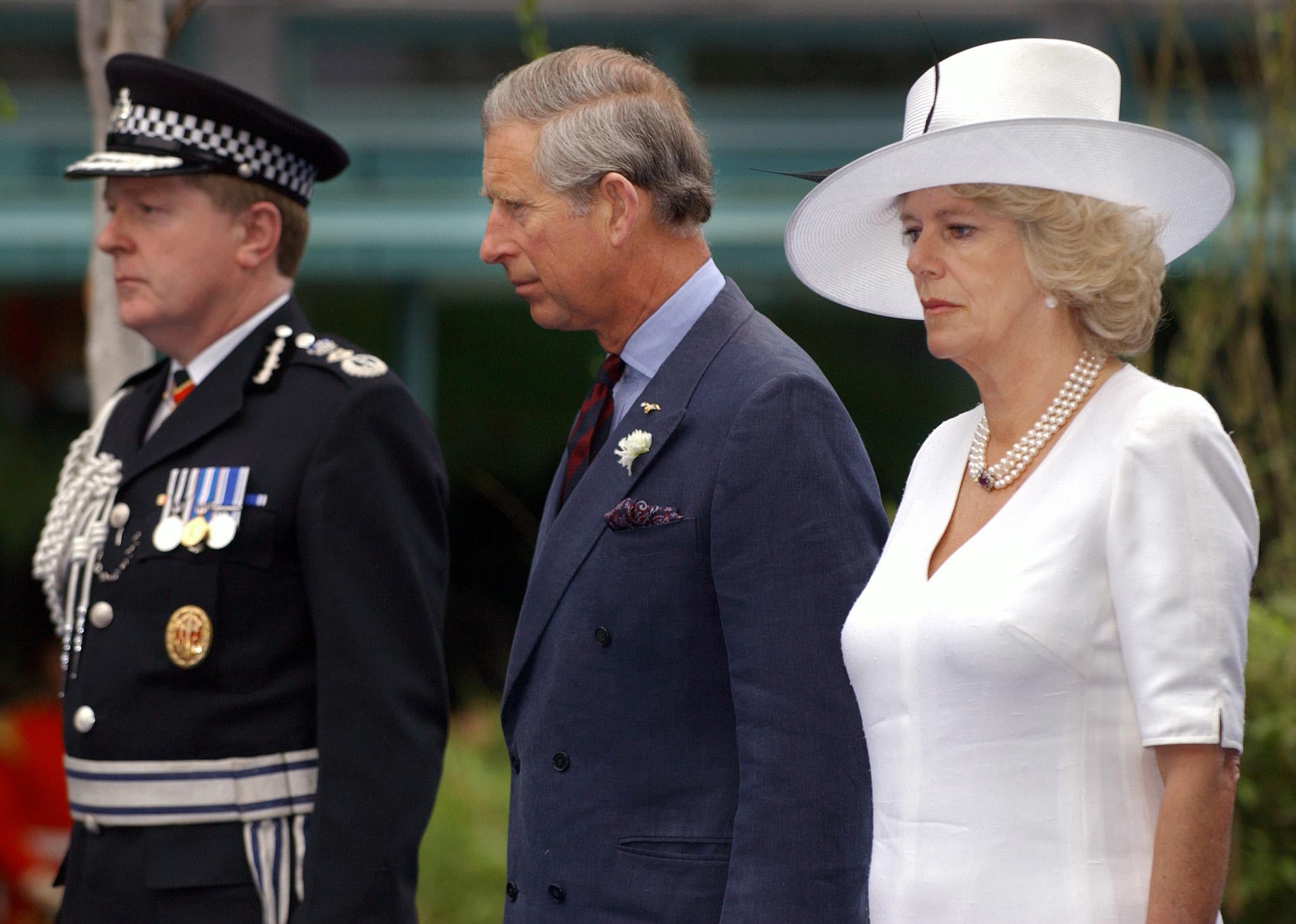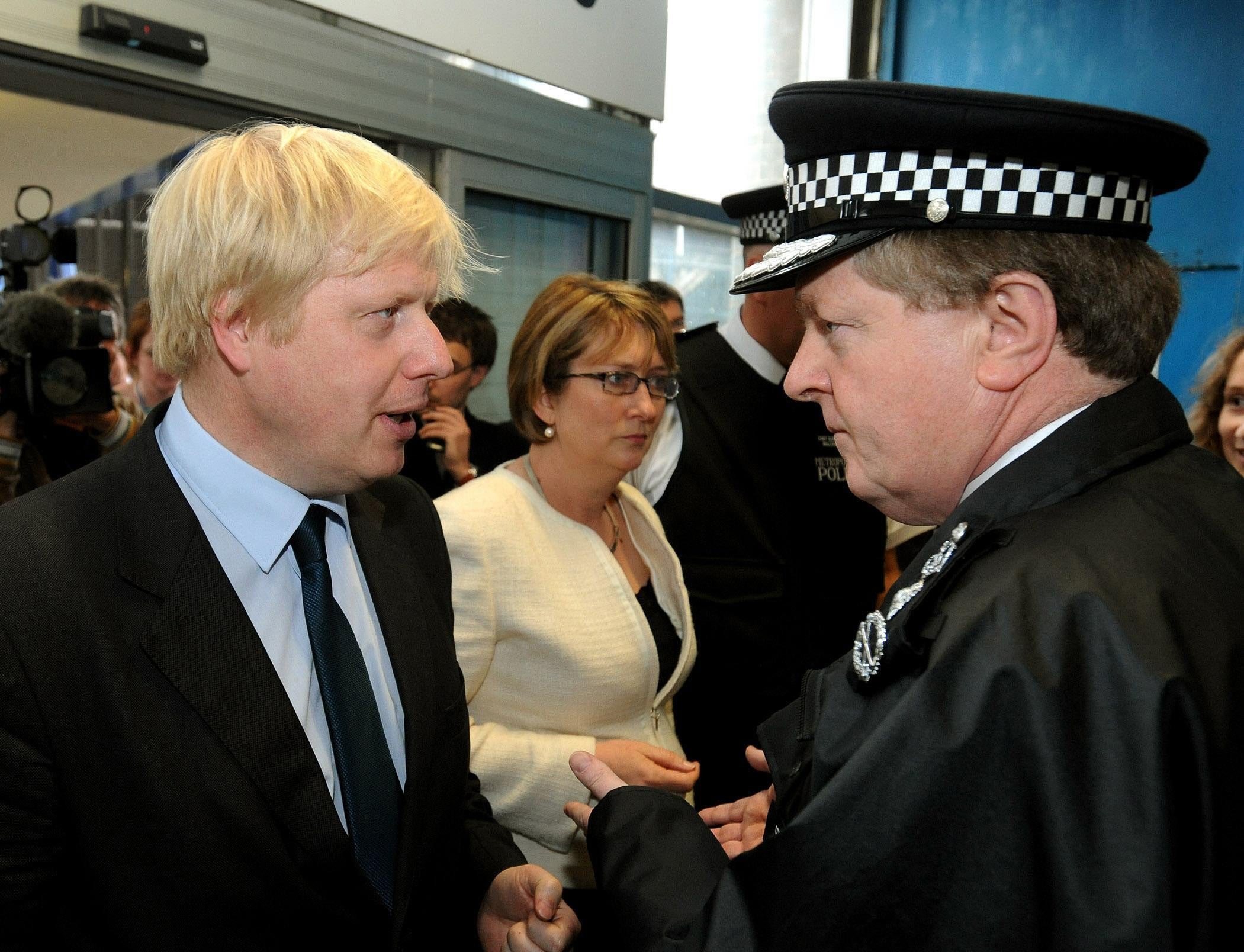Former Metropolitan Police commissioner Lord Ian Blair has died at the age of 72.
Ian Blair, who ran the force from 2005 to 2008, took a seat as a crossbench peer in 2010 when he became Lord Blair of Boughton. He had earlier been knighted in 1999.
His death was confirmed by Christ Church Oxford, where he was an honorary student.
In a statement on Friday, Christ Church Oxford said: “The Christ Church community would like to extend its condolences to the family of Ian Blair, the Lord Blair of Boughton QPM, who has died at the age of 72.

“Lord Blair, an alumnus and honorary student (fellow) of Christ Church, served as the commissioner of the Metropolitan Police from 2005 to 2008.”
The often controversial senior police officer, who was in charge of the force during the July 7 bombings, saw his career cut short when he was axed from Scotland Yard by Tory mayor Boris Johnson.
Until that point, he had held on to the job despite the furore caused by the death of Jean Charles de Menezes, whom police shot at Stockwell Tube station in July 2005 after mistaking him for a suicide bomber.

He clung on through a series of further hurdles with the support of the Home Secretary, the Police Authority and most of all, his senior officers.
But when the new mayor took charge of the Police Authority and told him privately that he had no confidence in his work, he walked out.
The Oxford graduate had joined the Met in 1974 and started his policing career on the beat in Soho and, as a detective chief inspector, later played a key role in identifying victims of the 1987 Kings Cross Station fire.
Lord Blair was chief constable of Surrey Police for two years before becoming deputy commissioner of the Met in 2000, taking over the top job five years later.
Everything changed for the commissioner on July 22 2005, when Mr De Menezes was mistaken for a suicide bomber and shot dead at Stockwell Tube station.
In the three years that followed, there was barely a day where he was able to escape the dead man’s shadow.
He survived the bitter criticism of Mr De Menezes’ bereaved family, press leaks and a series of critical official reports.
He clung on with the support of the home secretary, the Police Authority and most of all his senior officers, through a series of hurdles.
But events such as the inquest into Mr De Menezes’ death raised questions over his stewardship and there were reports in the Daily Mail of allegations about “vanity” business dealings with a close friend.
In 2007 he refused to resign after the force was found guilty by an Old Bailey jury of breaching health and safety laws over the shooting of the innocent Mr De Menezes and fined £175,000.
He expressed his “deep regret” for the “tragedy” of Mr De Menezes’s death but insisted it was an “isolated breach” under “extraordinary circumstances” and gave his backing for all officers involved in counter-terrorism.
Under his command, the Met became embroiled in a race row triggered by claims from senior officer Tarique Ghaffur.
He was accused of discriminating against him because of his race and undermining his role. There was uproar among some minority ethnic officers when the assistant commissioner was put on gardening leave.
Several weeks later another senior officer, Commander Ali Dizaei, was suspended pending an investigation into his conduct.
These rows were not the first the modernising police officer faced.
A product of a new generation of graduate officers, his critics soon dubbed him “New Labour’s favourite police officer”.
While Lord Blair turned his attention to neighbourhood policing and the introduction of community support officers, the eyes of his detractors were elsewhere.
There were claims he hindered the Independent Police Complaints Commission (IPCC) in the wake of Mr De Menezes’ death.
A report also criticised him for his actions after the shooting and questioned why he was not told of the Brazilian’s innocence for 24 hours.
A year later, Lord Blair sparked a furore after saying that “almost nobody” could understand why the Soham murders became the biggest story in Britain.
The row led to him apologising to the parents of the murdered schoolgirls, Holly Wells and Jessica Chapman.
He also sparked criticism by claiming the media was guilty of “institutional racism” in its coverage of murder investigations.
Then he was forced into another apology, this time to the then-attorney general Lord Goldsmith, after it emerged he had secretly recorded a series of telephone conversations with him and senior IPCC officials.
In the wake of the row, he was given a warning from the Metropolitan Police Authority that his behaviour was unacceptable.
He was then subjected to an unprecedented attack at the Police Federation conference from three key rank-and-file police leaders.
He was also criticised for alleged lobbying in support of plans to extend the period of detention for terror suspects to 90 days.
A botched anti-terror raid in Forest Gate, east London, in June 2006 did not help to relieve the pressure.
Mohammed Abdul Kahar was shot and injured as police swarmed into his family home searching for terrorist material that was never found.
Lord Blair later kept a lower profile as he tackled rising gun crime and an increased murder rate, particularly among London’s young people.
Criticising media coverage of knife crime, he once said: “People do not judge crime by statistics but by what they see on the street and on their way to work.”
Benedict Cumberbatch and Dame Anna Wintour attend Wimbledon
Pet owners given heatwave warning after dog rescued from hot car
Firefighters deal with ‘challenging night’ ahead of July 12 Orange Order parades
Tens of thousands take to streets for annual July 12 Orange Order parades
Loyalist bonfire on site with asbestos lit despite warnings
Gallagher children watch Oasis homecoming gig with Pep Guardiola







